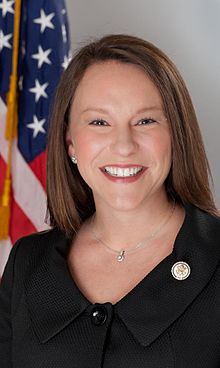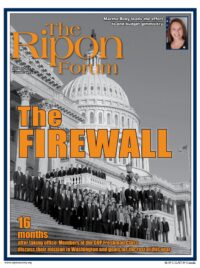
Recent polls indicate that as few as one in ten Americans think Congress is doing a good job. The cause of that discontent is often rooted in a fundamental problem: the American people don’t trust what politicians tell them.
And why should they?
Consider federal spending. The President and Congress routinely approve legislation that is written to produce “savings” on paper but not in reality. Those false savings are then used to pay for programs and activities in other areas of the government. The result is that spending goes up—and so does the deficit.
This deception is made possible, in part, because the budget and spending process is a confusing labyrinth of proposals, resolutions, and bills that is foreign to most Americans. It’s difficult for the layperson to truly see where the money goes. In that fog of confusion, there is ample opportunity for politicians to use gimmicks and budget tricks to hide the truth. Both parties are guilty of exploiting these loopholes, which are deeply engrained in the rules of the House and Senate.
Although the budget process is foreign to the public, the underlying principle is not. Americans fundamentally understand that spending more money than you have is not a sustainable way to operate a household or a business — or a government. Unfortunately, that is what we are doing. We are on track for our fourth straight year of trillion dollar deficits and a mountain of debt topping $16 trillion.
Americans deserve a genuine and predictable government that shoots straight … How can the people hold their representative accountable when Congress and their President distort the basic facts?
We must get our fiscal house in order. Part of the solution lies in electing a President that truly believes in limited government and restrained spending. But it is also important that we reform the budget process to restore accountability, integrity, and transparency in Congress.
Americans deserve a genuine and predictable government that shoots straight. As Thomas Jefferson wrote, “The whole art of government consists in the art of being honest.” How can the people hold their representative accountable when Congress and their President distort the basic facts?
That’s why I, along with 30 of my freshman colleagues, introduced the Honest Budget Act of 2012, an important step to change the way Washington works and instill integrity to the budget process. The legislation is designed to root out the budget gimmicks most commonly used by politicians to hide the truth, confuse the public, and run up the national debt.
Last year, Senate Budget Ranking Member Jeff Sessions introduced in the Senate similar legislation to strengthen the Senate’s rules against budget trickery. Numerous conservative groups have endorsed Sessions’ bill, including the Heritage Foundation, Americans for Tax Reform, and Citizens Against Government Waste. Our legislation expands this bill with similar rules in the House of Representatives to address nine specific budget gimmicks that, since 2005, have cost taxpayers more than $350 billion and have consistently added to the burgeoning national debt.
A federal budget is more than a set of numbers. It is a vision for the nation’s future and a financial report to the stockholders of the company — in this case, the American people.
For example, the legislation would:
- Make it more difficult to pass appropriation bills without first approving a budget, which the Senate has failed to do for more than 1,000 days;
- Tighten rules about using ‘emergency designations’ and ‘disaster designations’ to justify off-budget spending;
- Reveal both the real cost and the real commitment on what the federal government is spending; and,
- Prevent Congress from relying on phony rescissions, or claiming savings, unless the savings are real and genuine. Money that was never going to be spent cannot later be claimed as ‘savings.’ That’s common sense.
A federal budget is more than a set of numbers. It is a vision for the nation’s future and a financial report to the stockholders of the company — in this case, the American people. We deserve the truth, and the Honest Budget Act would help deliver a budget system that is accountable, predictable, and real.
In many respects, the Honest Budget Act of 2012 embodies the spirit of transparency and accountability that unites my freshman class. The best way to guarantee the truth and to help restore confidence in Congress is to specifically root out and end the gimmicks that so often obscure it.
The bill is a rallying point for those who truly want to put an end to the gimmicks and empty promises, and for all who believe that the American people deserve a government that they can trust.
I look forward to working with my colleagues to see this become reality.
Martha Roby represents the 2nd District of Alabama in the U.S. House of Representatives.




